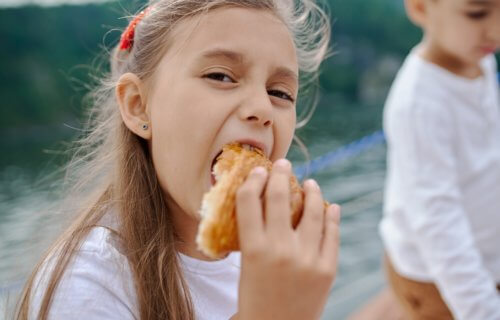BUFFALO, N.Y. — Parents with impulsive children may want to keep a close eye on their weight. A recent study reveals impulsive kids tend to eat faster than their more introverted peers and are therefore more likely to become obese. A team from the University of Buffalo adds their research found that impulsive children are also more likely to have greater urges to eat when food is sitting in front of them.
Understanding the behavioral and psychological causes behind excessive eating could help in creating treatments to reduce responsiveness to food cues and ultimately prevent the risk of childhood obesity.
“Temperament is linked to many child developmental and behavioral outcomes, yet despite emerging evidence, few studies have examined its relationship with pediatric obesity,” says Robert Berkowitz, MD, emeritus professor at the University of Pennsylvania and director of the Weight and Eating Disorders Research Program at Children’s Hospital of Philadelphia in a university release.
Eating slower helps to manage weight better
The research team studied 28 participants from a family intervention program that encourages slower eating behaviors for four to eight-year-old children at high risk for obesity. They studied each child’s internal food cues, such as the feeling of fullness from a meal, and external food cues including their response to seeing, smelling, or tasting food, and how fast they ate food. The eating cues were studied in relation to a child’s personality, self-control, impulsivity, and their ability to manage negative emotions.
Results showed that children who felt full had more self-control to not overeat. Children who were slow eaters were also less likely to be extroverted or impulsive.
“Parents may use food to soothe temperamental children and ease negative emotions,” says Alyssa Button, a doctoral candidate in the UB Graduate School of Education. “Future research should examine the different ways parents feed their children in response to their temperament, as well as explore whether the relationship between temperament and eating behaviors is a two-way street. Could the habit of eating slower, over time, lead to lower impulsiveness?”
More research exploring the relationship between impulsivity and food cues should also focus on understanding their temporal relationship. In other words, it is still unknown whether it’s impulsivity that’s driving bad eating habits or bad eating habits that reinforce impulsive behavior.
The findings appear in the journal Pediatric Obesity.
